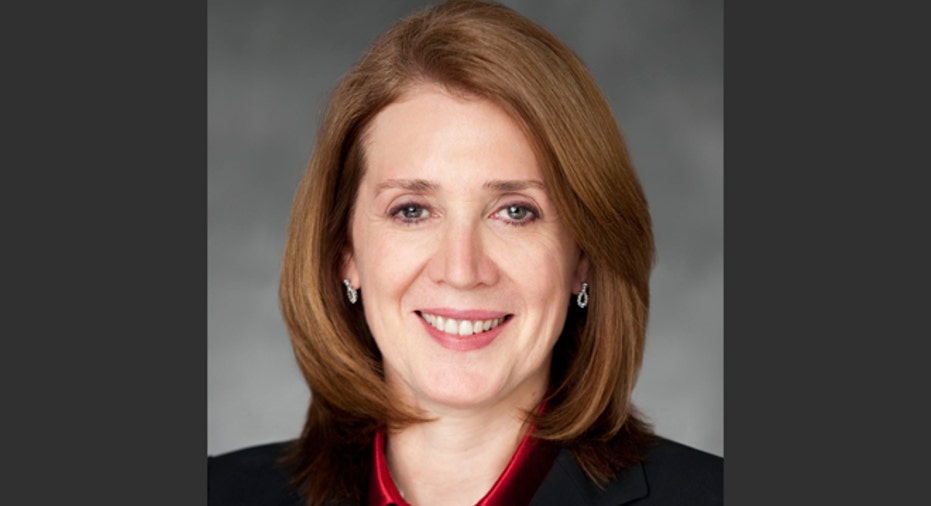Ruth Porat: The Latest Casualty of Dodd Frank

Way back when, during a time when Wall Street was Wall Street, Ruth Porat was a star, or in the vernacular of the finance business, a "rainmaker." She did big deals in the banking and technology sectors during the bubble years. She also advised the Federal Reserve during the financial crisis so ably that she was on the short list for deputy Treasury secretary in 2013 before asking her name be withdrawn from consideration. But more than that, Porat was a finance "lifer," as one senior executive at Morgan Stanley (NYSE:MS) put it. Porat is leaving her post as chief financial officer at Morgan for the same job at Google (NASDAQ:GOOGL). She spent 28 years on Wall Street nearly all of it at Morgan, becoming successful enough to be named chief financial officer, and considered a possible successor to the firm's current chief executive James Gorman. With so much wind in her sails, why would the 57-year-old survivor of the often noxious culture of Wall Street opt for an industry change, for what appears to be a lateral move to CFO of tech giant Google?
Spokespeople at the bank will spin Porat's exit as part of a natural evolution of a career that was spent helping technology companies in Silicon Valley acquire financing and grow. As Gorman put it in a statement, “After a 28-year career at Morgan Stanley, Ruth Porat has decided to leave the firm to take on a new role in Silicon Valley and return to her California roots.” There was a time when being a CFO on Wall Street meant something. It almost always put the executive in the running for one of the best and most lucrative jobs in corporate America as CEO of a big investment bank. Likewise, being a CFO at Google meant lots of stock options and maybe a chance to grab coffee with Mark Zuckerberg and hear war stories about how he hacked the Harvard computer system. No longer.
After eight years of relentless attacks on its character, not to mention a messy law named Dodd Frank that inhibits even fairly mundane risk taking, Wall Street-- including the likes of JPMorgan (NYSE:JPM), Bank of America (NYSE:BAC), and Citigroup (NYSE:C), and investment banks like Morgan Stanley (NYSE:MS) and Goldman Sachs (NYSE:GS), have been reduced to, for lack of a better comparison, utilities. Like Consolidated Edison, the banks are and always will make money, but not anywhere near what they made in the past when they were in the risk-taking business, rather than one that basically takes its orders from government bureaucrats.
Some of this industry change is good: Taking outsized risk, of course, was the reason for the 2008 financial crisis that devastated the banks, and the entire American economy. Enhanced regulation was designed to address the risks that rendered banks insolvent before a massive government bailout. But there were many reasons for the 2008 financial crisis other than risk taking, including government intrusion into the mortgage business, not to mention allowing banks with federally-insured deposits to merge with trading houses. Moreover, Dodd Frank did more than just squeeze the bad stuff out of the banking system, it made all types of risk virtually illegal. Hence capital requirements that are so onerous for places like JP Morgan that is next to impossible for small businesses to get loans and grow.
Trading regulations have become so restrictive that banks like Morgan Stanley and Goldman Sachs cant hold inventories of bonds for customers. That means lower profits, but also at some point, massive losses for pension funds that hold retirement savings for the nation's school teachers who voted twice for Obamanomics if (and when) the bond markets have a massive sell off.
One more casualty: A massive talent drain from Wall Street, of which Ruth Porat is merely a high-profile example, but certainly not the first or the last.
You don't read much about Wall Street courting soon-to-be college grads. Instead, those students are opting for careers in Silicon Valley. And it's happening not just because of the Occupy-Wall-Street inspired image of bankers as fat cats always looking for an opportunity to loot and pillage.
For all their high minded rhetoric, Millennials aren't that much different from Boomers in the greed department. They can read the newspapers and a balance sheet, and determine the places that are poised to take risk to grow, and most importantly pay them handsomely. But those companies are no longer located in Manhattan, but rather, out West in and around Palo Alto, California.
Ruth Porat can read a balance sheet. But she also knows being the CFO of Google in the era of Obamanomics is trade up from being the CFO of a bank that is really just a utility.



















